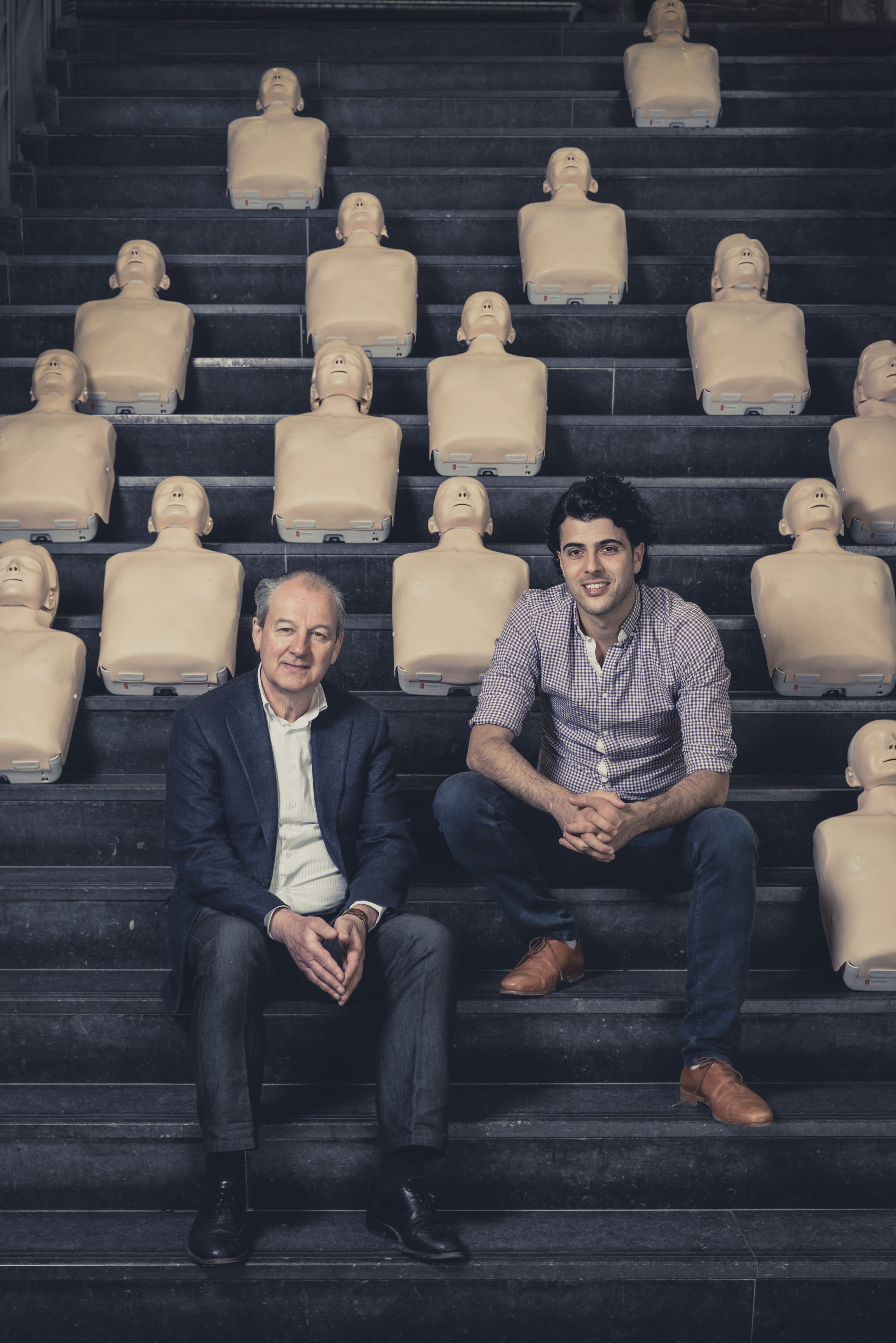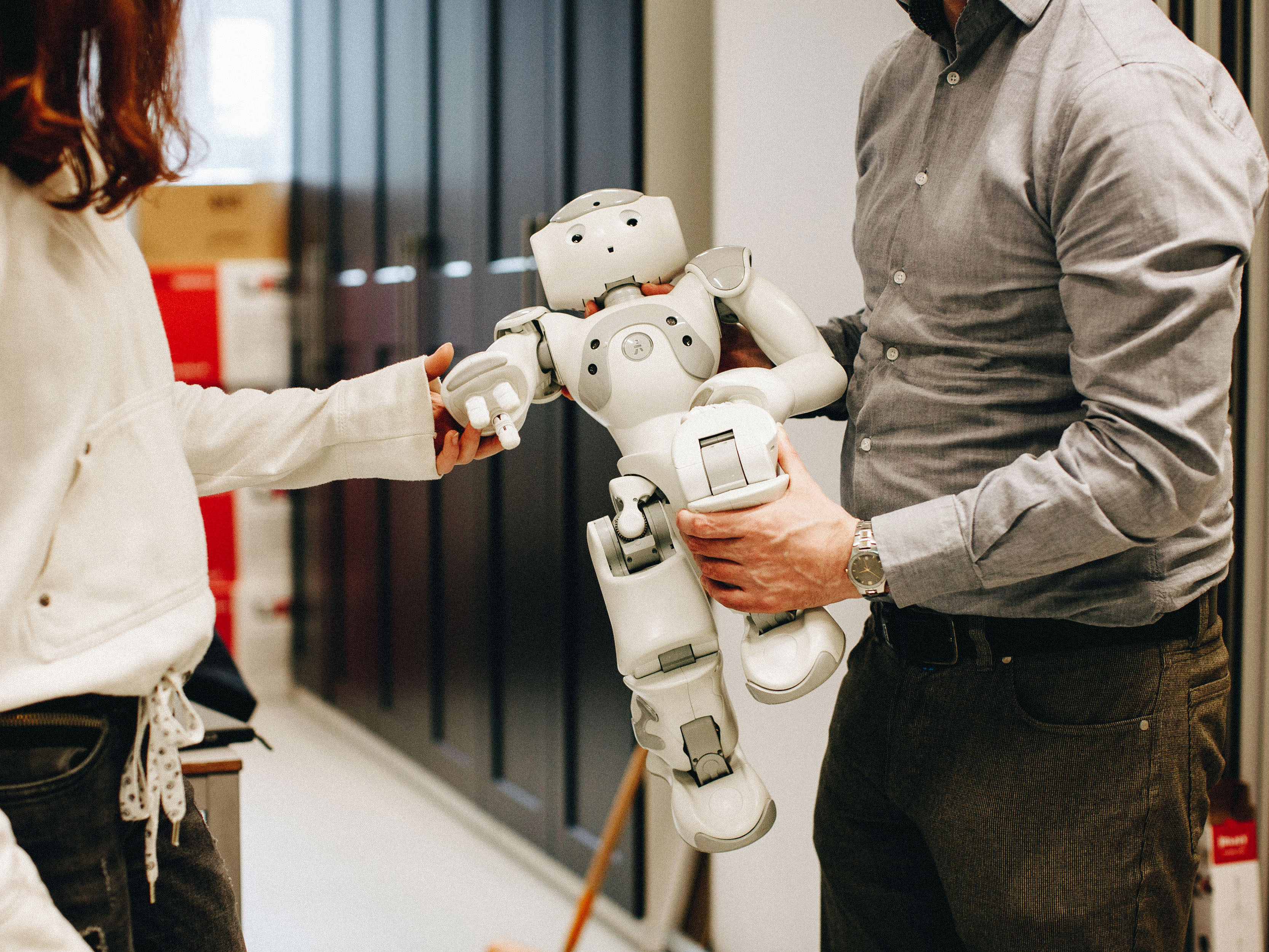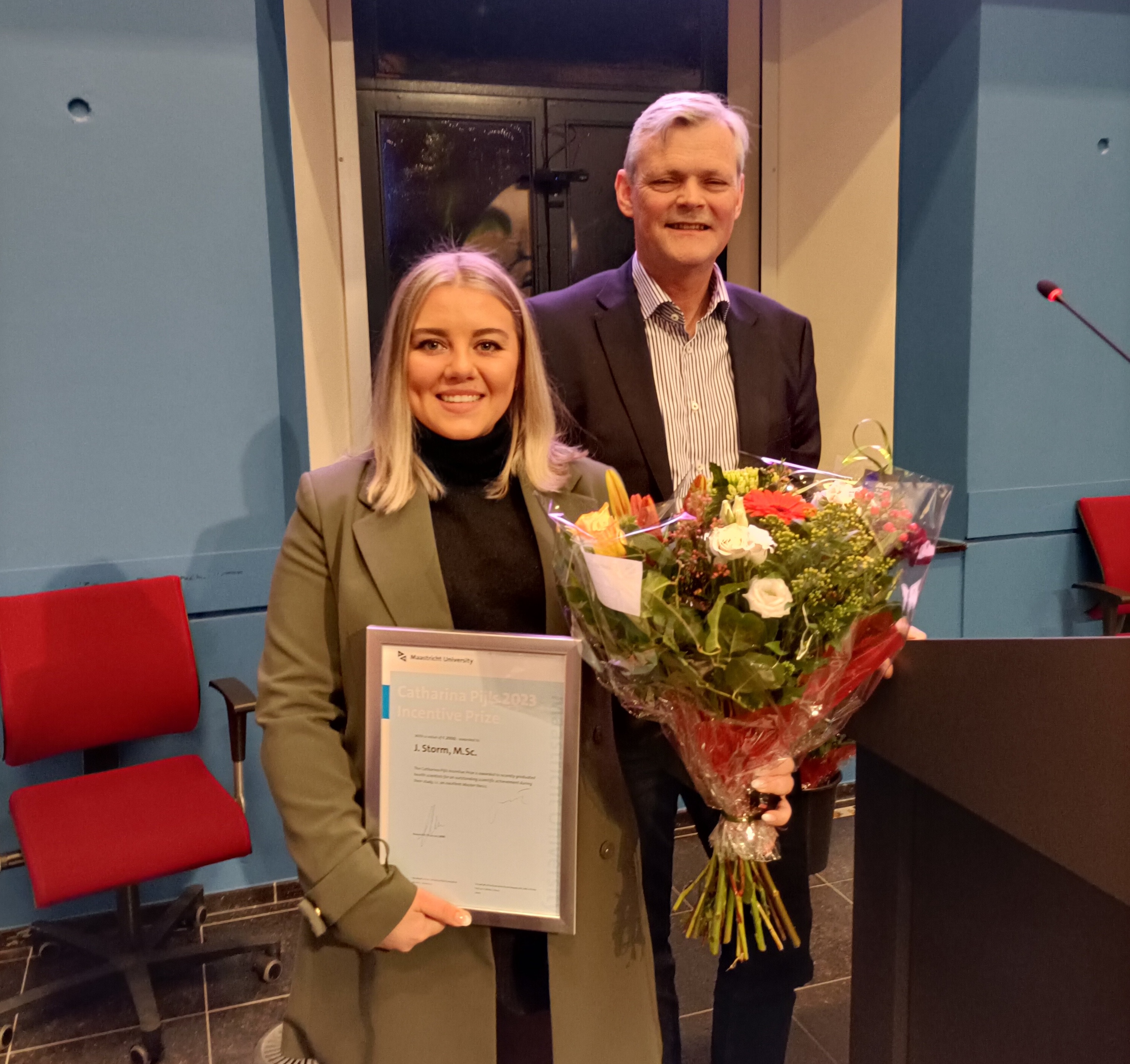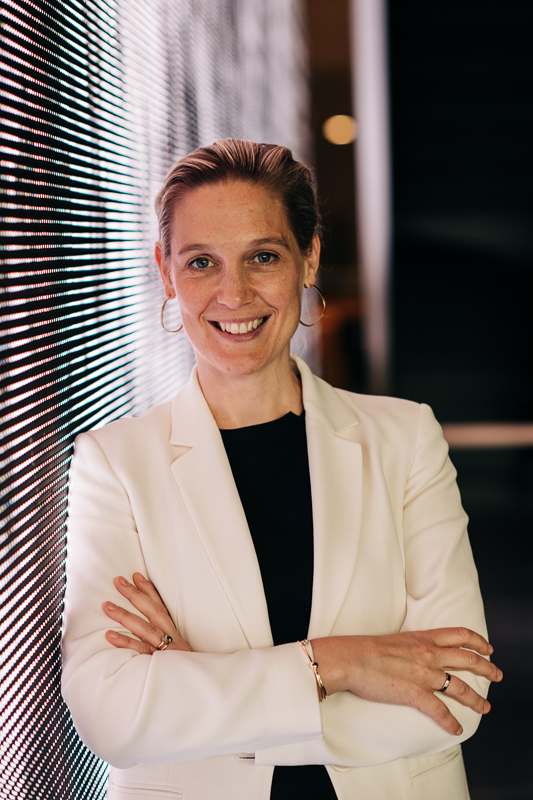A skill for life
Every year, between 7,000 and 8,000 people are resuscitated in the Netherlands after a cardiac arrest outside the hospital. The first six minutes are crucial. The sooner you start with heart massage the better, and the more people who learn this skill, the greater the chance of survival. With this in mind, Ton Gorgels, professor of Transmural Cardiology, together with Petra Schuffelen, founded the QRS Taskforce in Maastricht ten years ago. What has been achieved? A conversation with Ton Gorgels and the current president of the taskforce, medical student Ali Ghossein.
“With cardiac arrest, a lot is said about the crucial first six minutes”, explains Ali Ghossein. “But if you really want a good chance of survival, then citizens must start giving heart massage and defibrillation within two minutes.” That is often well before the ambulance arrives, so it is important that there are bystanders who can perform cardiopulmonary resuscitation (CPR).
“The solution to the problem of cardiac arrest isn’t just medical”, begins Ton Gorgels. “Medically, the solution is simple, namely resuscitation. Giving chest compressions, respiration and defibrillation isn’t complicated. The biggest challenge is social. You need to make sure that people outside the hospital can resuscitate, that you can quickly mobilise those people and that there are AEDs (Automatic External Defibrillators) nearby.”
Teaching pupils CPR
Ensuring that there are enough people in Limburg to resuscitate formed the basis for the creation of the QRS Taskforce ten years ago. The taskforce is named after the peaks (QRS) of the heartbeats on the electrocardiogram, but the name is also an abbreviation for Qualitative Resuscitation by Students. If you employ medical students as CPR instructors, you can considerably increase the number of people who can resuscitate, thought Ton Gorgels and Registered Nurse and jurist Petra Schuffelen. By using them to teach pupils CPR, you give a whole new generation a skill for life. But back then, they would not have dared to dream that this idea would grow into a large national organisation more than ten years later. “You often know where these things begin, but not how they end up”, laughs Gorgels.
Ghossein got involved in the organisation in 2010. When he saw a QRS Taskforce ad to become a CPR instructor, he responded immediately. “When I was a small child, I came to the Netherlands as a refugee from Lebanon. During the holidays, we visited family in Lebanon and I experienced the war first hand. That’s why I wanted to be a doctor so that I can help in urgent situations. And that's also why the Maastricht QRS Taskforce appealed to me.
Before becoming president, I was a CPR instructor for a year and a half. Every once in a while there would be a student that would start to cry during the introduction of the lesson. When I asked about it, it would often turn out that someone in their personal circle experienced a cardiac arrest. Most of the time these students would still stay and watch, but they would find it hard to perform the actions themselves.”
More instructors needed
When the Taskforce began in 2006, there were about ten medical students teaching a number of classes at a couple of secondary schools. “Since 2011, we’ve been putting a lot of effort into to the professionalisation and expansion of the organisation, and that’s been a success. Now, we’re an official foundation with a board and about 150 instructors who reach more than 10,000 pupils annually—a reason for Maastricht University to give us the Student Prize in 2012. The QRS Taskforce has now expanded into other cities. We’re currently also in Groningen, Utrecht, Nijmegen and Leiden”, says a proud Ghossein.
“We’ve achieved a lot in ten years”, says Gorgels. “This is especially true of all those students who have picked this up with so much enthusiasm. But we have to keep looking ahead. We’re now noticing that we’re bumping up against the limits of our capacity. We can maybe train another 100 students, but then we still don’t have enough student CPR instructors for all of Limburg. Therefore, we’re investigating whether we can get CPR training structurally embedded, for example, by asking teachers to train as instructors.”
Continuity
In addition, the taskforce also wants more financial continuity. Gorgels: “So far, we’ve always been dependent on donors and project funding. Together with the Health Foundation Limburg, we’re now looking at whether to approach problem owners like insurance companies. Insurance companies now only pay for professional care, in this case, the ambulance, but not for the very important help of a citizen who can perform CPR on the spot. We want to be able to organise this structurally, not only in cooperation with health insurers but also with governments and schools.”
All these efforts are also beginning to really pay off. “Not so long ago, we heard that a pupil’s mother went into cardiac arrest three weeks after a lesson from our taskforce”, says Gorgels. “That boy then worked with his father, who was a company emergency response worker, to perform CPR until the ambulance arrived. The mother survived and was able to return home two weeks later. She’s doing well now. Many people who are resuscitated can go on to lead a healthy life. That’s of course what you do it for.”

Also read
-
Last year, Maastricht University further strengthened its profile in science and technology by launching a Bachelor in Computer Science. The response exceeded all expectations, with the first cohort of 300 students from all over the world starting the programme in September. “Computers and...
-
The healthcare sector is facing limited resources. Without smart innovation, quality of care is at risk for all patient groups. Jessica Storm, an alumna of the master’s programme Healthcare Policy Innovation and Management, researched the cost-effectiveness of fall prevention for one of the largest...
-
Were you absolutely cruising through your exams? Were you well prepared with plenty time to spare? Then Anique de Bruin’s work won’t change your life. But for everyone else, the Professor of Self-regulation in Higher Education has useful insights and tools. Together with a refugee scholar financed...


